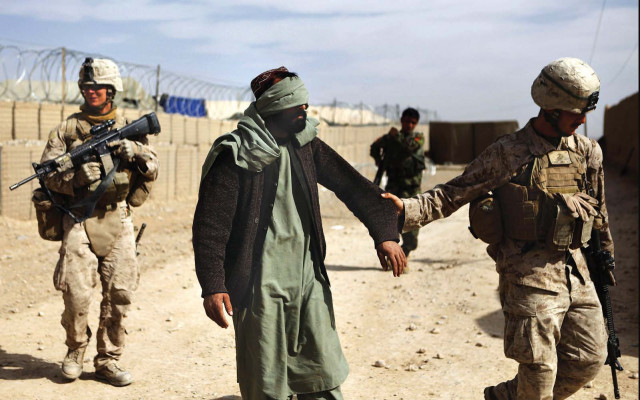‘Military action alone not a solution for Kabul’
Pakistan tells UN that a reconciliation process is imperative for durable peace.

“We believe that the vexing question of security, in a society suffering from four decades of war, cannot be addressed by imposing another war,” Ambassador Abdullah Hussain Haroon said in a speech.
“Yet sadly, the current decision-making in the US, as illustrated in prominent American journalist Bob Woodward’s new book, is focused on counter-insurgency theories which promotes expansion of military use in Afghanistan,” he said during a debate on the situation in Afghanistan.
Pakistan, he remarked, supported an Afghan-led and inclusive reconciliation process to bring the opposition groups there into the political mainstream, and welcomed the establishment of a high-level peace council in the country, as well as the installation of a peace and reconciliation trust fund.
Afghanistan’s immediate neighbours, including Pakistan, had a special role to play in security in the country’s stability, Ambassador Haroon said. In that regard, he said Pakistan was engaged in a number of regional initiatives with a view to promoting economic and commercial cooperation and rooting out the menaces of narcotics, terrorism and extremism.
Bilaterally, Pakistan and Afghanistan had successfully concluded a transit trade pact and Afghan President Karzai had visited Pakistan in September, he said.
A joint statement, issued following the visit, outlined a detailed course of action to further strengthen the partnership between the two countries in five key areas: security and counter-terrorism; economic cooperation, transit trade and investment; infrastructure development and connectivity; energy linkages; and capacity-building in education, health and agriculture. Additionally, Pakistan was engaged in several reconstruction and development projects in Afghanistan, including building hospitals, roads and educational institutions, the envoy said.
An increase in the number of extended scholarships had brought some 6,500 Afghan students to Pakistani colleges and universities and in the area of security. He said Pakistan’s engagement with Afghanistan and its international partners was robust.
It may be mentioned that the tripartite commission, which also included the United States and the International Security Assistance Force, had made recent gains. Pakistan had established 1,000 border posts, with more than 120,000 troops deployed on the border.
Haroon said Pakistan had also housed more than three million Afghan refugees over the past three decades. Despite isolated spells of voluntary return, Pakistan was still currently hosting some 1.7 million refugees, and was committed to their safe and dignified return, he added.
Published in The Express Tribune, November 6th, 2010.



















COMMENTS
Comments are moderated and generally will be posted if they are on-topic and not abusive.
For more information, please see our Comments FAQ